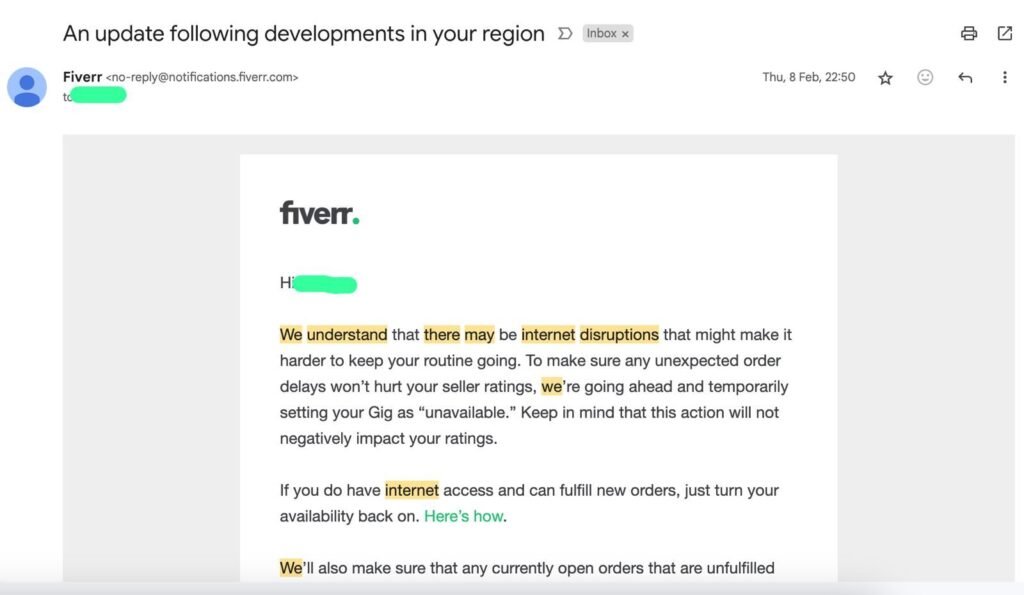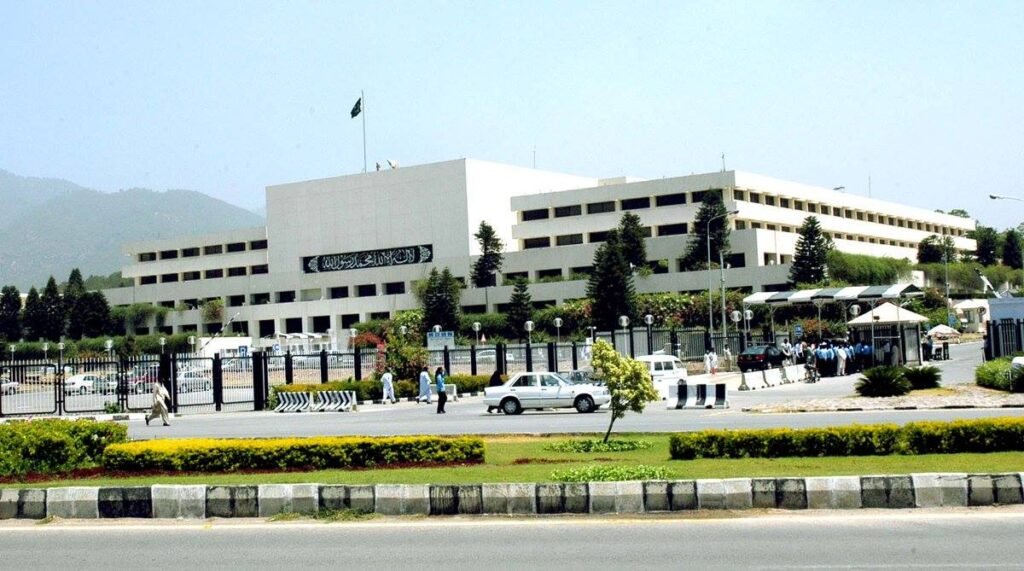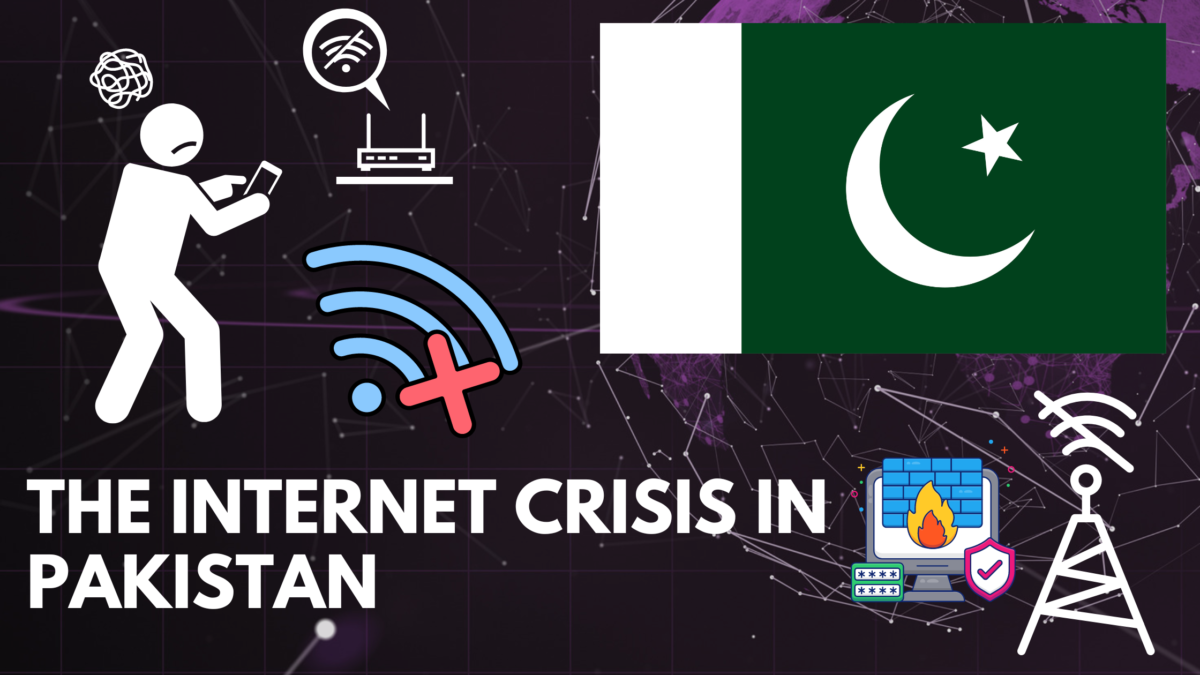The Internet Crisis in Pakistan: A Growing Challenge for Freelancers and IT Professionals
In today’s world, where everything is connected, having a reliable internet connection is not just a nice-to-have—it’s a lifeline for many. But recent events in Pakistan have thrown this vital resource into chaos, creating a tough situation for freelancers and IT professionals. From sluggish internet speeds to restrictive policies on freelancing platforms, the obstacles are mounting for those who depend on the web to make a living.

The Decline in Internet Speed
Recently, many people in Pakistan have noticed a frustrating drop in internet speeds. It’s not just about slow social media; the entire internet experience is suffering. This slowdown seems to be linked to new firewall tests using Deep Packet Inspection (DPI) technology. Depending on how many checks are set up and where they’re applied, DPI can really drag things down. This slowdown affects everything from casual web browsing to important work tasks, leaving users feeling stuck and stressed.
Freelancers Facing Unprecedented Challenges
For freelancers, these internet issues are more than just annoying—they’re a serious problem. Many freelancers are using VPNs to get around location restrictions on various platforms, but this has led to even bigger issues. Freelancing and payment platforms are catching these discrepancies between actual and VPN locations, resulting in account bans. Just two days ago, a friend of mine lost access to $3500 in his PayPal account due to this. Such problems make it incredibly hard to keep a steady income.

Fiverr's Reaction to Connectivity Problems
The troubles extend to freelancing platforms like Fiverr. Due to widespread internet disruptions, Fiverr has had to mark all Pakistani service providers as unavailable. This move aims to protect freelancers’ ratings from being unfairly affected by issues beyond their control. Fiverr has even warned clients that Pakistani freelancers might struggle to meet deadlines because of ongoing internet problems. Despite trying the best available options, even 4G/LTE connections are falling short. Screenshots from affected software houses show that these connectivity issues are more than a nuisance—they’re a major barrier to doing business.
People have lost their long term contracts with clients due to connectivity issues and many clients have decided not to work with Pakistani clients anymore due to these connectivity issues.
The Broader Implications for Pakistan's IT Sector
These internet troubles are more than just a minor inconvenience; they’re causing real frustration and demotivation. The IT sector, which is one of the few areas in Pakistan with significant growth potential, is feeling the strain. This industry has largely grown through individual efforts, not much government support, and is a crucial source of foreign exchange, bringing in over $400 million annually. Even though IT exports have surpassed $3 billion for the first time, these achievements are driven by personal initiative rather than substantial institutional backing.
In times of economic difficulty, when both individuals and organizations are working hard to bring valuable foreign exchange into Pakistan, slow internet speeds are becoming a major hurdle. The situation is so severe that even accessing essential services, like medical reports, is becoming increasingly difficult.

A Call for Government Action
As we move forward in an era dominated by artificial intelligence and digital transformation, it’s fair to ask: where is the government leading us with such inadequate digital infrastructure? The current challenges pose a critical question—will people choose to invest in Pakistan or move their capital elsewhere? It’s clear that immediate action is needed from policymakers. To ensure Pakistan’s freelancing and IT sectors continue to grow and thrive, the government must address these internet infrastructure issues directly.
Conclusion
The internet crisis in Pakistan is more than just a technical glitch; it’s a growing barrier to economic opportunity and development. For freelancers and IT professionals who rely on stable internet connections to do their jobs and support their families, these disruptions are deeply felt. As the nation works to maintain its place in the global freelancing market, it’s crucial that the government steps up to improve the country’s digital infrastructure. Only then can Pakistan hope to unlock its full potential and continue to thrive in the digital age.
Related Posts
Leave a Reply Cancel reply
Latest posts
Categories
Recent Posts
- SSN Fraud in Pakistan’s Software Industry: A Growing Concern
- The Internet Crisis in Pakistan: A Growing Challenge for Freelancers and IT Professionals
- Pros and Cons of Taking Admission in FAST NUCES for BS CS in 2024
- Mastering Database Indexing: The Ultimate Guide for Optimal Query Performance to Write Better SQL Queries
- PITB’s ‘SheWins’ Training Program Opens Applications for 6th Cohort 2024 | Course Duration | Fees | Outline | Apply Online




